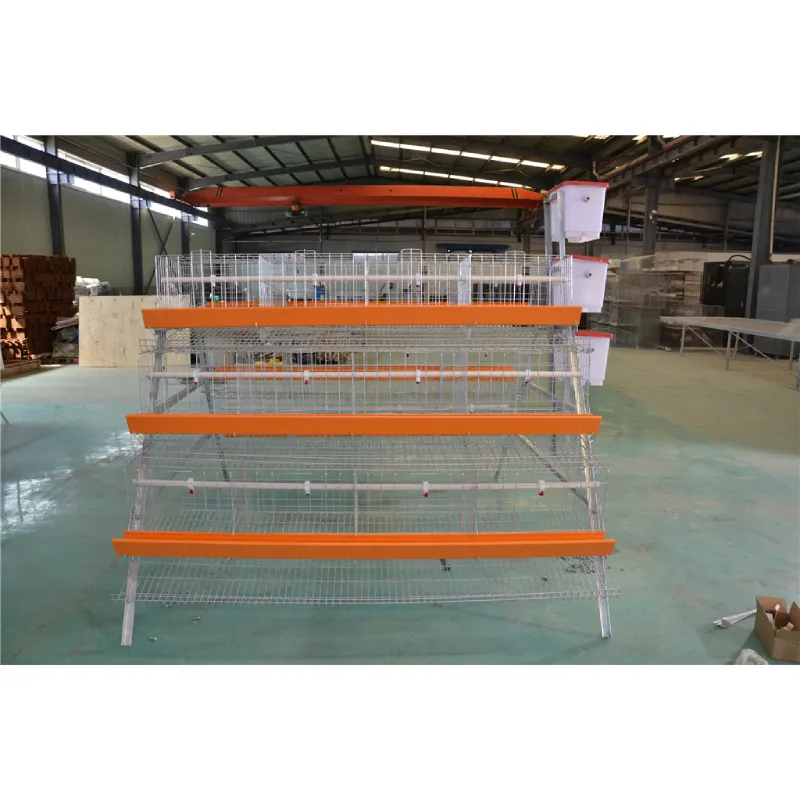Efficient Slaughterhouse Equipment for Meat Processing and Hygiene Solutions
Nov . 09, 2024 22:10 Back to list
Efficient Slaughterhouse Equipment for Meat Processing and Hygiene Solutions
The Importance of Slaughter Washers and Cleaners in the Meat Industry
In the meat processing industry, hygiene and sanitation are paramount. With the rising demands for food safety and quality, slaughter washers and cleaners have emerged as crucial tools to ensure that meat processing facilities maintain a high standard of cleanliness. These machines are specifically designed to clean and sanitize equipment and areas where animals are processed, thus helping to prevent the spread of pathogens and ensuring that the meat produced is safe for consumption.
The Role of Slaughter Washers
Slaughter washers play an essential role in the overall meat processing workflow. They are designed to remove blood, hair, and other organic materials from the surfaces of slaughtering equipment and facilities that come into direct contact with the meat. These washers generally use high-pressure water jets combined with detergents and sanitizers to effectively eliminate contaminants.
One of the primary features of slaughter washers is their adaptability. Different types of meats and processing methods may require specific cleaning protocols. For example, the equipment used for processing poultry may differ significantly from that used for larger animals like cattle or pigs. Modern slaughter washers are often equipped with adjustable settings to accommodate various cleaning needs, making them versatile tools for meat processors.
Efficiency and Cost-Effectiveness
Utilizing slaughter washers can significantly enhance the efficiency of the cleaning process. Traditional cleaning methods often involve manual labor, which can be time-consuming and prone to human error. Slaughter washers, on the other hand, automate this process, ensuring that each piece of equipment or surface is thoroughly cleaned according to industry standards.
In addition to improving efficiency, slaughter washers can also contribute to cost savings in the long run. Although the initial investment in these machines may be substantial, the reduction in labor costs, combined with the decreased risk of contamination-related issues, can lead to significant financial benefits over time. Facilities that prioritize cleanliness and hygiene are less likely to face recalls or legal liabilities stemming from food safety violations, thus safeguarding their reputation and bottom line.
slaughter washer and cleaner

Compliance with Regulations
Food safety regulations are stringent in the meat industry, and slaughter washers help facilities remain compliant with these strict standards. Organizations such as the USDA in the United States have outlined specific requirements for sanitation in meat processing environments. By employing advanced cleaning systems like slaughter washers, facilities can ensure that they meet or exceed these regulatory requirements.
Additionally, many consumers today are more conscious of the food they consume and the safety standards of the producers they patronize. Companies that can demonstrate strict adherence to hygiene practices, including the use of effective cleaning machinery, are likely to gain a competitive advantage in the market.
Innovations in Cleaning Technology
As technology continues to evolve, so do slaughter washers and cleaners. Modern machines are increasingly incorporating smart technology, making them more efficient and user-friendly. Features such as automated cleaning cycles, real-time monitoring of sanitation levels, and easy integration with existing processing systems are becoming more commonplace.
Furthermore, environmentally friendly cleaning solutions are gaining traction in the industry. Many slaughter washers now allow for the use of biodegradable detergents, helping to minimize the environmental impact of meat processing while maintaining high sanitation standards.
Conclusion
In conclusion, slaughter washers and cleaners are indispensable tools in the meat processing industry. They enhance the overall efficiency of operations, help maintain compliance with stringent regulations, and promote food safety, all of which are vital components of a successful meat processing business. As the industry continues to evolve and consumers become increasingly aware of food safety issues, the importance of investing in advanced cleaning technologies will only grow. Meat processors who prioritize hygiene and safety through the use of slaughter washers will not only protect their products but also build consumer trust and loyalty in a competitive marketplace.
-
Hot Sale 24 & 18 Door Rabbit Cages - Premium Breeding Solutions
NewsJul.25,2025
-
Automatic Feeding Line System Pan Feeder Nipple Drinker - Anping County Yize Metal Products Co., Ltd.
NewsJul.21,2025
-
Automatic Feeding Line System Pan Feeder Nipple Drinker - Anping County Yize Metal Products Co., Ltd.
NewsJul.21,2025
-
Automatic Feeding Line System - Anping Yize | Precision & Nipple
NewsJul.21,2025
-
Automatic Feeding Line System - Anping Yize | Precision & Nipple
NewsJul.21,2025
-
Automatic Feeding Line System-Anping County Yize Metal Products Co., Ltd.|Efficient Feed Distribution&Customized Animal Farming Solutions
NewsJul.21,2025






